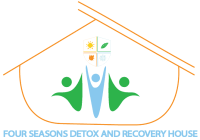An addiction recovery journal can be a powerful tool to support long-term sobriety by promoting self-expression, emotional awareness, and personal growth. Journaling allows individuals to safely explore their thoughts and feelings, track their moods and habits, aid therapy by identifying discussion topics, set and monitor recovery goals, and practice daily gratitude. These benefits contribute to a whole-person approach to recovery, helping individuals focus on more than just abstinence. At Four Seasons Detox in Simi Valley, California, journaling is one of many tools encouraged across their luxury detox, inpatient rehab, and faith-based programs—each designed to support clients through every stage of the recovery process.
How an Addiction Recovery Journal Can Support Sobriety
Four Seasons Detox is a top-rated drug and alcohol addiction treatment center. We help individuals from all walks of life overcome addiction. Part of this is ensuring that all clients have access to the full spectrum of tools they need to succeed, not just during treatment, but long after they leave. Journaling is just one of many means people in addiction recovery can use to support their sobriety and overall well-being. Keep reading to find out how an addiction recovery journal can support sobriety and how our programs can help.
How an Addiction Recovery Journal Can Support Sobriety
Understanding how an addiction recovery journal can support sobriety may motivate you to start one yourself. Here are just some of the possible benefits that stand out:
Self-Expression and Awareness
Journaling offers a safe space to express your thoughts and emotions. No one can judge or misunderstand you. Reading back what you write may help you better understand yourself, what you’re going through, and why you feel the way you do. Journaling can also help you take stock of your emotional needs so that you know when to reach out for support.
Mood Tracking
Many people with mood disorders use mood tracking to keep track of their moods and the factors that might influence them (e.g., how many hours of sleep they get each night). As someone in addiction recovery, this can help you understand what habits help you and what you might want to change to better support your mental health.
Aid the Therapy Process
Journaling can aid the therapy process in various ways. Some people find that writing in a journal helps them determine what they would like to discuss in their next therapy session. If you are in therapy, your therapist might even be able to assign you journaling prompts as homework.
Goal Setting
Journals are a perfect place to set goals and keep track of them. You can write about successes, setbacks, and your hopes and dreams for the future. If you feel frustrated at any point in time, a journal is also a great place to let it out and problem-solve.
Gratitude
Gratitude has numerous health benefits, including those that relate to social and emotional well-being. Some people find that keeping a gratitude journal helps them reflect on and remember what they’re grateful for on a day-to-day basis.
A Whole-Person Perspective
Addiction recovery is ideally approached from a whole-person perspective. Journaling is an excellent practice to help facilitate this. With journaling, you’re focusing on more than abstinence alone; writing about your feelings, tracking habits, or setting goals helps you look at the bigger picture and set yourself up for success.
Our Programs
Encouraging journaling and other coping skills or strategies, Four Seasons Detox takes a whole-person approach to addiction treatment. Our programs include:
Luxury Detox in Ventura County
When clients first enter treatment, they often need help getting through drug and alcohol withdrawal symptoms. Although they are relatively short-lived, acute withdrawal symptoms can be uncomfortable. In some cases, they can be dangerous without proper medical care. Our luxury detox in California provides 24/7 support, monitoring, and treatment for clients in this stage of recovery.
Inpatient Drug Rehab in Ventura County
Inpatient addiction treatment removes you from daily life triggers temporarily to help you stabilize, build healthy routines, and access transformative therapy services. Our inpatient drug rehab in Ventura County provides comprehensive treatment for addiction and co-occurring disorders (if applicable). You’ll get a personalized treatment plan but can expect to participate in groups, mind-body wellness, individual therapy, and other activities, such as family therapy and recreation.
Faith-Based Rehab in California
Four Seasons Detox lets all clients choose their own path. We offer faith-based rehab in California as a specialized program for Christians in addiction recovery. This program offers unique services, like faith-based counseling, Sunday church services, and Christian support groups.
Call Four Seasons Detox for Luxury Addiction Treatment in Simi Valley
Four Seasons Detox is a trusted substance abuse treatment provider in California. With a full continuum of care, we’re here to help you or your loved one heal from addiction and its effects. Call Four Seasons Detox for luxury addiction treatment in Simi Valley, CA, today at (805) 991-5111.
Frequently Asked Questions (FAQs) About How an Addiction Recovery Journal Can Support Sobriety
What are some different approaches to journaling?
Stream of consciousness: Sit down and write what comes to mind without filtering it. Also called morning pages, this process can be useful for helping you process your thoughts and feelings.
Bullet journaling: Rather than write in paragraphs, use bullet points to express your thoughts or track your habits.
Gratitude journaling: Writing about what you are grateful for on a regular basis.
Guided journaling: Using prompts to guide what you write about. Each journal entry, for example, could answer a specific prompt.
You can also combine different approaches, or try a few until you find what works for you.
How do I start an addiction recovery journal?
What are some good journaling prompts for addiction recovery?
What are my biggest triggers? What skills can I use to help myself next time I encounter them?
How did substances affect my life negatively? This could relate to your interpersonal relationships, work, health, or something else.
What am I grateful for on my journey to recovery from addiction so far? You might write about your friends, family, treatment, or personal resilience.
How does sobriety support the future I want for myself?
Write a goodbye letter to your addiction.
Sometimes, the prompts you’ll want to answer will differ depending on how far along you are in recovery. You re-use prompts if you want to.



